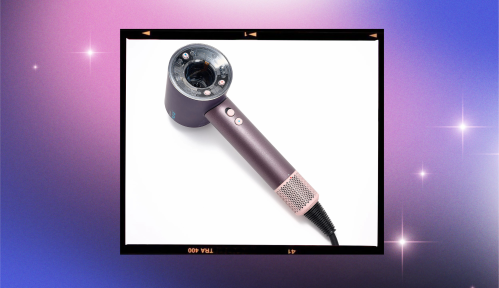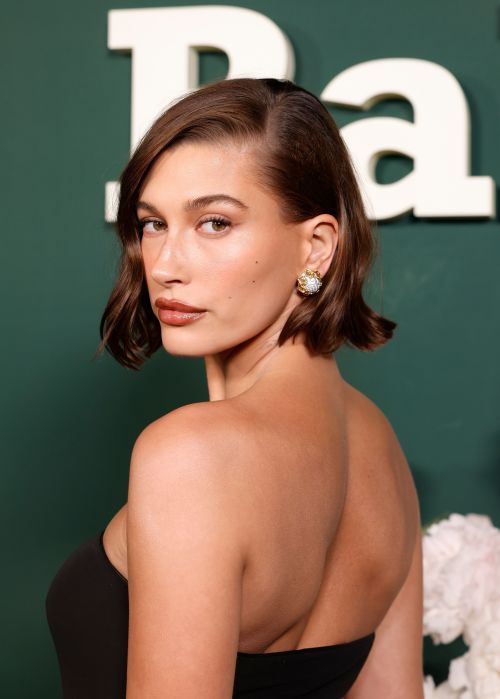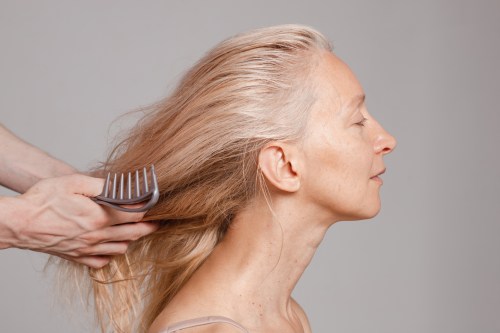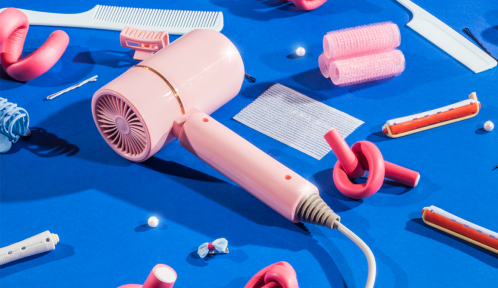Our editors independently select these products. Making a purchase through our links may earn Well+Good a commission
What to know about the latest advancements in treating women’s hair loss
Hair loss in women is actually a very common condition. Here, experts break down the many causes behind it, and how to treat it.

Back in the day, I used to chalk up hair loss to being a natural symptom of aging, just like acquiring fine lines and gray hair. Lately, however, I’ve heard murmurs from plenty of friends and browsed through recent research, to find that more-and-more women are losing their hair—and it’s not as simple as excess shedding or losing strands due to age or stress.
That said, even though you’re reading about this frequently, it’s not necessarily a new phenomenon. Society is coming to terms with stigma in so many different ways, and we’re just beginning to lift the veil on women losing their hair. “For my 45-plus years in practice, women have been talking about hair loss,” explains Wilma Bergfeld, MD, a board-certified dermatologist with Cleveland Clinic. “In reality, it’s always been there and there has always been a large population of women that come into physicians with this problem.”
Dermatologist Francesca Fusco, MD of Wexler Dermatology seconds this: “I believe hair loss in women isn’t so much rampant as it is out in the open,” she says. “Thanks to journalists who write about it, individuals are more comfortable talking about it.”
So as we become more open to speaking about hair loss, a door opens for us to explore solutions, ranging from over-the-counter supplements and at-home devices to in-office treatments. Because hair loss is such a complex problem, and a lot of factors can go into it, let’s explore its causes and the ways to deal with it. Keep on scrolling for more intel.
What causes hair loss in women?
As with so many skin and hair concerns, genetics play a major factor in hair loss. But that’s not nearly the only cause. Here’s the breakdown of all the factors that can contribute.
Genetics: “There can be an unmasking of early pattern hair loss which is hereditary in both males and females,” says Dr. Bergfeld. It can also stem from an actual disease or condition like androgenetic alopecia, anemia, an iron deficiency, or thyroid disease, according to her.
Hormones: A slew of hormonal conditions can lead to hair loss. “At puberty, we begin to see the hormones playing a big part in hair loss,” says Dr. Bergfeld, as with hair loss that’s associated with things like polycystic ovary syndrome. “Hair loss is greatly stimulated by elevations of adrenal and androgens.” Then as you reach your mid-twenties to thirties, she notes that your hormones change and you can experience diffused thinning, particularly along the part line of your hair. “That’s typically when shedding begins,” she says. Pregnancy also becomes a life event, in which many women find themselves shedding and dealing with hair loss, as is perimenopause and menopause itself “which is when your hormones are syncing and the estrogen becomes lower than the testosterone.”
Stress: If you’ve ever experienced stress-induced breakouts, you know how it can affect your body. And it can do the same to your hair. “Stress makes every disease worse, including initiating hair loss because of the chemical changes in the body,” says Dr. Bergfeld. “Stress can initiate an adrenal surge of hormones, which can then end up in hair loss.” That said, if it’s a one-time incident—like a death in the family or financial stress—she says that most people regrow their hair once the cause is resolved.
Nutrition: In general, Dr. Fusco notes that a lack of protein can lead to hair loss in women. And in regards to your menstrual cycle, prolonged bleeding can be an indication that there is a lack of iron, which can potentially initiate hair loss as well, according to Dr. Bergfeld.
So how can you treat it?
Thankfully, there are plenty of ways to help fend off shedding. Here, the experts break down all of the options on the market (and in dermatologists’ offices).
Shampoos and scalp serums: Depending on the reason for your hair loss, a hair-stimulating shampoo or scalp serum can help. “Since there are multiple causes of hair loss, the serum or shampoo would benefit if it contains the corrective ingredient,” says Dr. Fusco. “For example, minoxidil for androgenetic alopecia, or zinc pyrithione shampoo for hair shedding due to extensive dandruff.” In the former scenario, you can look for scalp treatments like those from Nioxin Hair Regrowth Treatment ($28). If you’re dealing with a scalp disease such as seborrheic dermatitis or a fungal infection of the scalp, it’s all about keeping the scalp clean (because your follicles are healthy if your skin is). “In that case, we use anti-dandruff shampoos, like Head & Shoulders Classic Clean Anti Dandruff Shampoo ($9), at least two times a week,” says Dr. Bergfeld, which tap the active ingredient zinc pyrithone to nix flakes. “A lot of these products also contain antioxidants, which are helpful.”
At-home treatments: These days, you can find things like red light devices and special caps to use for treating hair loss at home, as well. “At-home lasers and low-level laser therapy units complement existing treatments, or can be used alone to energize hair follicles,” says Dr. Fusco. More studies are coming out that note these devices, such as the Theradome EVO LH40 ($595) can increase the number of hair fibers on the scalp over time. The only problem? “But they range from $100 to $200, all the way up to $4,000,” says Dr. Bergfeld. “I tell my patients it’s a no brainer if you can afford it, because it’s anti-inflammatory and appears to be able to enhance the mitochondria in the hair follicle and enhance growth.”
In-office treatments: If you visit your dermatologist, you can opt for treatments like platelet-rich-plasma or PRP. “PRP has been the latest, greatest procedure in-office to address many forms of hair loss,” says Dr. Fusco, adding that injectible options have also shown great promise; however, these have to be maintained over time. “Injectibles and PRP are all over the place and exceedingly expensive,” she says. “PRP can be around $750 a treatment, and you need to do it between once a month to twice a year. After some time, the hair begins to fall out again.” The good news, according to her, is that more-and-more research is being poured into stopping hair loss by cosmetic brands and pharmaceutical companies.
Supplements: So many vitamins and supplements claim to help with your hair, from biotin to collagen—and they’re moderately helpful in reducing shedding, but they aren’t going to help with big-time hair loss. “I typically put patients on biotin forte with zinc, a super B vitamin with zinc at 30 milligrams and vitamin C at 200,” says Dr. Bergfeld. Then there are the more advanced, targeted OTC options like Isdin Lambdapil Hair Density Capsules ($55), which Dr. Fusco sometimes recommends to patients with positive feedback.
That said, with all of the treatment options to choose from, both experts highly suggest checking with your dermatologist before beginning any sort of regimen. “It’s very worthwhile to go to a dermatologist, who is knowledgeable about hair, since there are many diseases of the scalp and hair,” says Dr. Bergfeld. “We frequently have to involve medical professionals to determine where individuals fit on the treatment spectrum and what’s driving their hair loss.”
In the meantime, here are hairstyles for thinning hair that vamp things up. And this is how to protect your hair from the sun, because that isn’t doing your strands any favors.
Sign Up for Our Daily Newsletter
Get all the latest in wellness, trends, food, fitness, beauty, and more delivered right to your inbox.
Got it, you've been added to our email list.










